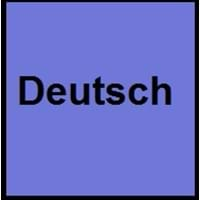Irish vs German
- In Irish language, there are no exact words for "yes" or "no".
- There are different set of numbers for counting humans and another set for counting non-humans in Irish Language.
- One of the large group of Indo-Germanic languages is German.
- The second most popular Germanic language spoken today behind English is German language.
Irish and German Language History
Comparison of Irish vs German language history gives us differences between origin of Irish and German language. History of Irish language states that this language originated in c. 750 whereas history of German language states that this language originated in 6th Century AD. Family of the language also forms a part of history of that language. More on language families of these languages can be found out on Irish and German Language History.
Irish and German Greetings
People around the world use different languages to interact with each other. Even if we cannot communicate fluently in any language, it will always be beneficial to know about some of the common greetings or phrases from that language. This is where Irish and German greetings helps you to understand basic phrases in Irish and German language. Irish word for "Hello" is Dia dhuit or German word for "Thank You" is Danke. Find more of such common Irish Greetings and German Greetings. These greetings will help you to be more confident when conversing with natives that speak these languages.
Irish vs German Difficulty
The Irish vs German difficulty level basically depends on the number of Irish Alphabets and German Alphabets. Also the number of vowels and consonants in the language plays an important role in deciding the difficulty level of that language. The important points to be considered when we compare Irish and German are the origin, speaking countries, language family, different greetings, speaking population of these languages. Want to know in Irish and German, which language is harder to learn? Time required to learn Irish is 36 weeks while to learn German time required is 30 weeks.





